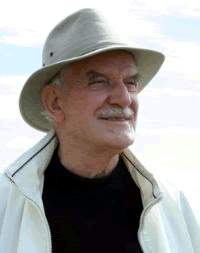
My ghost brother coming back to life
By: Jim Shilliday
Posted: 11/9/2011 1:00 AM
For decades, my family lived a kind of whodunit puzzle, wondering what happened to my brother, Bob, killed one awful night on a bombing run over Germany in 1945. He had become one of the Unknown, a perpetual 19-year-old ghost -- until this year.
It's so long ago, the Second World War, and the ache is gone. But there are memories. Memories are ghosts, and they haunt. Ghosts are sometimes described as solitary essences that hover about people with whom they were associated in life. I know what that means.
We grew to accept Bob's death, more or less, as a fact of life. We could talk casually about him -- then, an unexpected emotion, a choke in the voice, usually around Remembrance Day.
Families all across Canada lived with ghosts for decades after the brutality of the Second World War. All of Canada, in fact, was one big family during almost six years of the most widespread, most concentrated, most furious and most deadly of wars ever, many grieving and unable to forget (those ghosts again).
The who-what-where-when-why of my brother's death was a mystery. Had it been anti-aircraft fire? A night fighter? I even wondered, in the 1990s (after reading The Iron Cage), if Bob had ended up in Russian hands.
If his plane had crash-landed, or the crew bailed out, they would have been very close to the advancing Russian forces. At the end of the Second World War, more than 30,000 British and Commonwealth soldiers the Red Army "liberated" from German camps in 1945 disappeared into the gulags.
I had shied away from reading the packet of my brother's letters home our mother had saved. When I finally read them, I wondered if there was a story about my brother. That seemed preposterous -- we knew almost nothing.
But as the research went on, I was astonished at how much I finally was learning about my brother's wartime experiences. The letters helped, the web kept producing nuggets of information. A blog about Bob's squadron and its activities written by an airman's son in Scotland; a recently translated diary by a Polish airman whose squadron was on many of the same raids as my brother; RAF Bomber Command's Raid Report Diary.
Back in 1945, in the weeks following word of Bob being missing, I had done all the things I usually did, commendable or not -- didn't cry, didn't put on a quiet face, or a sorry one, didn't do any of the things I gradually came to believe one should do in what should be a period of bereavement.
Slowly, a feeling of guilt came over my high school sensibility. Which was silly, certainly, because people in their mid-teens are not mentally constructed to be that sympathetic.
Ah, but as the years passed, all that went away. It wasn't until many years later that I saw the real tragedy of my brother's death over wartime Europe -- how he, and so many thousands just like him, had faced without guile, without greed, without any accusations, the stern and impersonal future that possibly -- even likely -- awaited them.
Bob, and most of all those others who died, were not "heroes," didn't shoot down any foes that we know of, didn't win any special "gongs" for actions in the face of the enemy. They just did -- as they saw it -- their duty.
So I'm writing a book about my brother's service, including 80 days on a Lancaster bomber squadron as a mid-upper gunner, a time spent in a Russian-roulette existence facing hours of unimaginable cold and terror and loneliness, punctuated with minutes of extreme bravery against enemy attack -- until his 13th rolling of the dice.
I was well into the research when, on a spring morning this year, 66 years after my brother disappeared from our lives, an extraordinary coincidence! A ghost from the past telephoned me from her home in Massachusetts -- a woman who, as a girl in England, had loved Bob. I recalled her name from his letters. Her call convinced me that writing Bob's story was the right thing to do. I had learned so much about his short life that I hadn't known before. A sort of peace had descended over us both. Over all of us. Bob had taken on substance. No longer was he a ghost.
I have learned so much about my brother, after so long... Hello, Bobby.
And, for the first and last time, and with a lightened heart... Goodbye.
The working title for Jim Shilliday's book about his brother is My Brother's Ghost: The Life and Times of a Missing Airman.
Republished from the Winnipeg Free Press print edition November 9, 2011 A10
A retired daily newspaper editor, Jim Shilliday is the author of Canada's Wheat King: The Life and Times of Seager Wheeler, published by the University of Regina, and winner of the 2008 award for best book of non-fiction by a Manitoba writer. In 2010, he published A Memory of Sky: A Pilot's View of Canada's Century of Flight.
At the height of the Cold War in the 1950s, the author flew the F-86 Canadair Sabre jet fighter with NATO for three years in England, West Germany and France.
He is a member of the Air Force Association of Canada and the Canadian Aviation Historical Society. He writes for the Winnipeg Free Press, and for several aviation magazines.
He was awarded the Distinguished Service Award by Heritage Winnipeg, and is a past member of the Stonewall (Manitoba, Canada) Heritage Advisory Committee.
Jim's upcoming book has a working title of My Brother's Ghost: The Life and Times of a Missing Airman.
